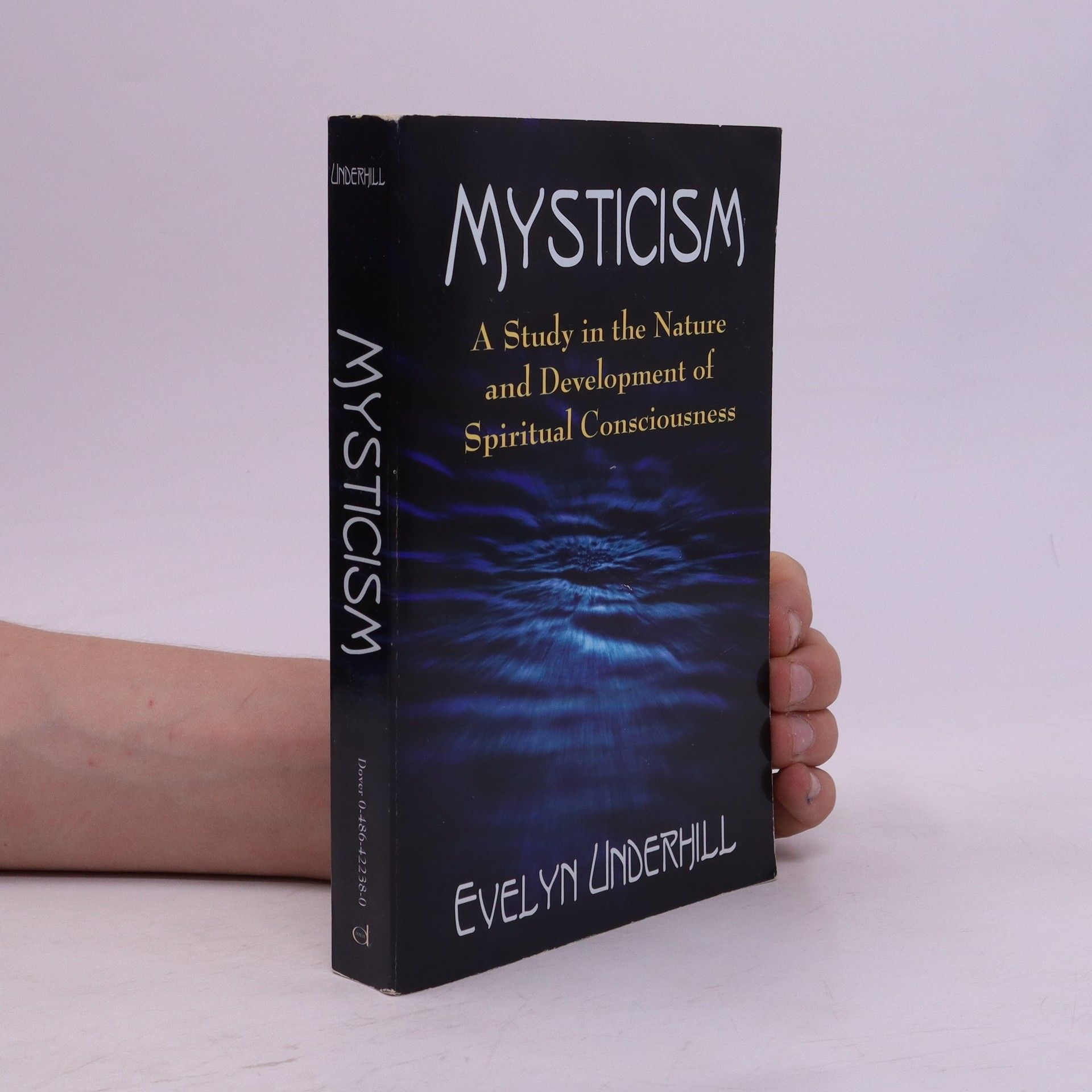Evelyn Underhill's Prayer Book
- 136pagine
- 5 ore di lettura
A gift volume comprising Evelyn Underhill's two personal prayer books, rediscovered 75 years after her death.
Evelyn Underhill è stata una scrittrice inglese rinomata per le sue numerose opere sulla religione e sulla pratica spirituale, in particolare sul misticismo cristiano. Nella prima metà del ventesimo secolo, fu una delle autrici più lette in materia nel mondo anglofono. I suoi scritti, contraddistinti da una profonda intuizione e da una prosa chiara, esplorano la natura della vita spirituale e l'approccio al trascendente. La sua opera fondamentale del 1911, Mysticism, divenne un testo fondamentale che definì il suo genere per molti anni.







A gift volume comprising Evelyn Underhill's two personal prayer books, rediscovered 75 years after her death.
The work of a noted British authority on mysticism, it is divided into two parts: the first provides an introduction to the general subject of mysticism and its relation to metaphysics, psychology, theology, magic, and symbolism. The second and longer part contains a detailed study of the nature and development of spiritual or mystical consciousness, including such topics as the awakening of the self, the purification of the self, voices and visions, introversion, ecstasy and rapture, the dark night of the soul, and the unitive life. An interesting appendix provides a historical sketch of European mysticism from the beginning of the Christian era to the death of Blake.
A poet, novelist, pacifist and mystic, Evelyn Underhill (1875-1941) spent her life deeply immersed in the things she wrote about. At first an agnostic, Underhill became drawn to Catholicism, though her husband, a Protestant, tried to dissuade her. Instead of taking the traditional Christocentric view held by most Anglo-Catholics, Underhill gravitated toward a more intellectual side of religion. With her work "Practical Mysticism", Underhill expounds on her views of spirituality from a secular standpoint, arguing that spiritual life is innate in all humans, a part of human nature, and that all of life is sacred. A product of the Edwardian era, Underhill's works are romantic and unashamedly sensuous. A prominent figure in her field of interest while she was writing, Underhill remains a respected writer on religion and spiritual practice.
A New York Review Books Original Transcending divisions of creed, challenging social distinctions of all sorts, and celebrating individual unity with the divine, the poetry of Kabir is one of passion and paradox, of mind-bending riddles and exultant riffs. These new translations by Arvind Krishna Mehrotra, one of India’s finest contemporary poets, bring out the richness, wit, and power of a literary and spiritual master.
Focusing on Jacopone da Todi, the book provides English readers with essential insights into this prominent Italian mystical poet, known for his role in the Franciscan movement. It highlights his pioneering contributions to philosophic religious poetry and explores his significance as a vivid figure in early Italian literature. Through this exploration, readers gain a deeper appreciation of his unique style and the historical context of his work.
The book explores the development of mystical consciousness within Christianity, tracing its origins and unique characteristics. It examines how Christian mystics differ from those in other spiritual traditions, such as Oriental, Neoplatonic, or Islamic mysticism. Notable psychologists like Leuba and Delacroix provide insights, emphasizing the distinct qualities that define the Christian mystic as a unique psychological type. The work aims to clarify the essence of Christian mysticism and its place in the broader context of spiritual development.
This classical work is significant in the realms of philosophy, psychology, and religion, particularly within Christianity. Alpha Editions has undertaken the task of preserving its legacy by republishing it in a modern format, ensuring clarity and readability through careful reformatting and redesign. This effort aims to keep the book accessible for both present and future generations, highlighting its enduring importance in human history.
Co je v duchovní zkušenosti tím podstatným prvkem. Který z mnoha stavů a zjevení, jež mystici popisují, jsou její integrální součástí, a co se z těchto stavů a stupňů stane, když je popíšeme současným slovníkem a svlečeme je z mnišských rouch, do nichž jsou obvykle oblečeny? Které prvky jsou plodem toho, co nám sugeruje tradice, vědomé nebo nevědomé symboliky, chybného výkladu citů, tužeb přicházejících z nižších center, nebo přestrojeným vyplněním nevědomého přání? Co je pravá podstata mystiky? Když odstraníme rysy, které někteří mystici přijímají a jiní odmítají – všechno, co pochází jen z tradice, temperamentu nebo nevědomky přijaté symboliky –, co zbude jako nutný a stálý rys každé pravé mystické zkušenosti? Vyplatí se tuto otázku klást. Neboť pozornost byla věnována jednou historické stránce mystiky, jindy (daleko méně) její praxi, ale chybělo jasné pochopení rozdílu mezi jejími podstatnými a náhodnými rysy – mezi tradičními formami či metodami a věčnou zkušeností, kterou zprostředkovávají. V mystické literatuře se často slova míchají s věcmi a symboly se skutečnostmi, takže velká část této literatury jako by mluvila o nějakém uzavřeném a vzdáleném snovém světě, ne o dosažení univerzální pravdy.